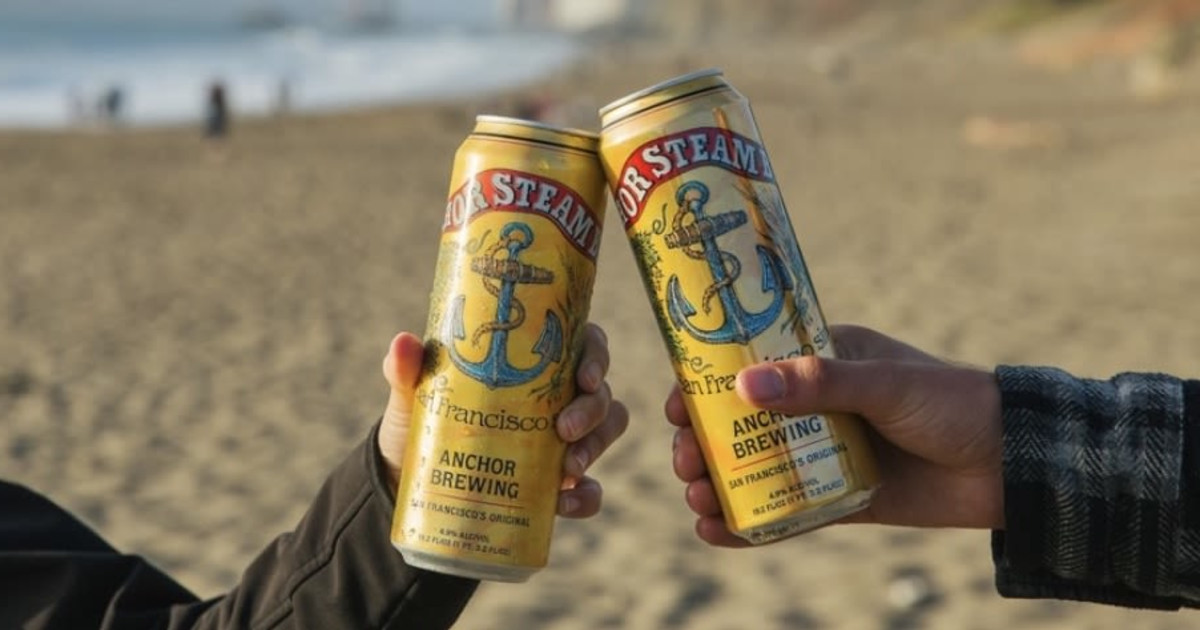Anchor Brewing Company's Closure: A Legacy Ends After 127 Years

Table of Contents
The Financial Struggles Leading to Anchor Brewing Company's Closure
The Anchor Brewing Company closure wasn't a sudden event; it was the culmination of years of mounting financial difficulties. Several factors contributed to the brewery's demise, highlighting the challenges faced by even established players in the fiercely competitive craft beer market.
-
Declining Sales Figures: Recent years have witnessed a steady decline in Anchor's sales, a trend reflecting broader shifts in consumer preferences and increased competition. The once-dominant brand struggled to maintain its market share against both larger corporate breweries and the burgeoning wave of smaller, innovative craft breweries.
-
Intense Competition: The craft beer industry is a crowded marketplace. Anchor faced increasing pressure from both massive multinational breweries with extensive marketing budgets and numerous smaller, nimble craft breweries offering unique and exciting new beer styles. This intense competition made it difficult for Anchor to stand out and capture market share.
-
Rising Production Costs: The costs associated with brewing beer – from raw materials like hops and barley to distribution and labor – have steadily increased over the past decade. These escalating costs squeezed Anchor's profit margins, making it increasingly difficult to remain profitable.
-
Pandemic Impact: The COVID-19 pandemic dealt a significant blow to the hospitality industry, including breweries. With bars and restaurants closed or operating at reduced capacity, Anchor experienced a sharp decline in on-premise sales, a critical revenue stream for many breweries.
-
Marketing Challenges: Larger breweries often possess significantly larger marketing budgets, enabling them to reach a wider audience and build stronger brand awareness. Anchor struggled to compete on this front, impacting its ability to attract and retain customers.
Anchor Brewing Company's Historical Significance and Legacy
Despite the unfortunate circumstances leading to the Anchor Brewing Company closure, the brewery's historical significance and enduring legacy remain undeniable. Anchor played a pivotal role in shaping the American craft beer landscape.
-
Craft Beer Revolution Pioneer: Anchor is widely credited as a pioneer of the American craft beer revolution. Its commitment to quality, innovation, and traditional brewing methods helped pave the way for the countless craft breweries that followed.
-
Iconic Anchor Steam Beer: The brewery's flagship beer, Anchor Steam Beer, became a cultural icon, synonymous with San Francisco and a testament to Anchor's brewing expertise. This unique beer, brewed using a unique process, helped define a style and inspire generations of brewers.
-
Brewing Techniques and Styles: Anchor's influence extended beyond its own beers. The brewery's commitment to traditional methods and its experimentation with various styles helped shape the evolution of brewing techniques and styles within the American craft beer industry.
-
San Francisco Cultural Identity: Anchor Brewing Company is inextricably linked to the cultural identity of San Francisco. The brewery became a landmark, a symbol of the city's rich history and its vibrant brewing culture.
-
Inspiring Future Generations: The closure of Anchor serves as a bittersweet reminder of the brewery's profound impact on subsequent generations of brewers, inspiring countless individuals to pursue their passion for craft beer.
Speculation and Future of the Anchor Brewing Brand
The Anchor Brewing Company closure leaves many questions unanswered about the future of the brand. Several scenarios are possible, each with significant implications.
-
Potential Acquisition: A larger brewing company might acquire the Anchor brand and its intellectual property, potentially reviving production under new ownership. This would ensure the survival of the brand but could also lead to changes in brewing practices and the overall character of the beers.
-
Brand Revival: Even if acquired, the challenge of reviving the Anchor brand will be significant. Recapturing its former glory and customer loyalty will require a strategic approach that respects the brand's heritage while adapting to changing market conditions.
-
Employee Uncertainty: The closure leaves many Anchor employees facing an uncertain future, highlighting the human cost of such significant business decisions. Finding new employment opportunities in a competitive job market will be a challenge for many.
-
Impact on San Francisco: The loss of Anchor will undoubtedly impact the San Francisco beer scene, diminishing the city's unique brewing heritage and its attraction for beer tourists.
-
Loss of Brewing Heritage: The closure represents a loss of a unique and valuable brewing heritage, a cautionary tale for other smaller craft breweries navigating the challenges of the modern beer industry.
The Impact on the Craft Beer Industry
The Anchor Brewing Company closure serves as a cautionary tale for the craft beer industry as a whole.
-
Challenges for Smaller Breweries: Anchor's struggles highlight the challenges faced by even established players in the craft beer market, emphasizing the importance of adaptability and resilience. Smaller breweries must carefully manage costs, innovate their offerings, and adapt to evolving consumer preferences to survive.
-
Industry Consolidation: The closure might accelerate the ongoing trend of industry consolidation, as larger breweries acquire smaller brands. This could lead to a reduction in diversity and the potential loss of unique brewing traditions.
-
Adapting to Market Changes: Anchor's difficulties underscore the necessity for craft breweries to constantly adapt to changing market conditions. This includes embracing innovation, responding to consumer trends, and managing costs efficiently.
Conclusion
The closure of Anchor Brewing Company marks a significant loss for the American beer industry. It's a sobering reminder of the challenges faced by even iconic breweries. The brewery's legacy as a pioneer of the craft beer revolution and its enduring contribution to San Francisco's culture will, however, not be forgotten. Its story serves as a potent lesson in navigating the complexities of the modern brewing landscape.
Let's remember and celebrate the enduring legacy of Anchor Brewing Company. Share your favorite Anchor memories and reflect on the impact this Anchor Brewing Company closure has on the craft beer world. Use #AnchorBrewingClosure to join the conversation and keep the memory of this iconic brewery alive.

Featured Posts
-
 Derrick White Leads Celtics To Victory Against Cavaliers 4 Important Observations
May 01, 2025
Derrick White Leads Celtics To Victory Against Cavaliers 4 Important Observations
May 01, 2025 -
 On Set Ben Affleck And Gillian Anderson Shoot Action Scene For New Film
May 01, 2025
On Set Ben Affleck And Gillian Anderson Shoot Action Scene For New Film
May 01, 2025 -
 900 People Receive 1 Million Debt Relief Thanks To Michael Sheen
May 01, 2025
900 People Receive 1 Million Debt Relief Thanks To Michael Sheen
May 01, 2025 -
 Is Age Just A Number Exploring The Social And Biological Realities
May 01, 2025
Is Age Just A Number Exploring The Social And Biological Realities
May 01, 2025 -
 Kansas City Royals Win Thriller Against Cleveland Garcia And Witt Deliver
May 01, 2025
Kansas City Royals Win Thriller Against Cleveland Garcia And Witt Deliver
May 01, 2025
